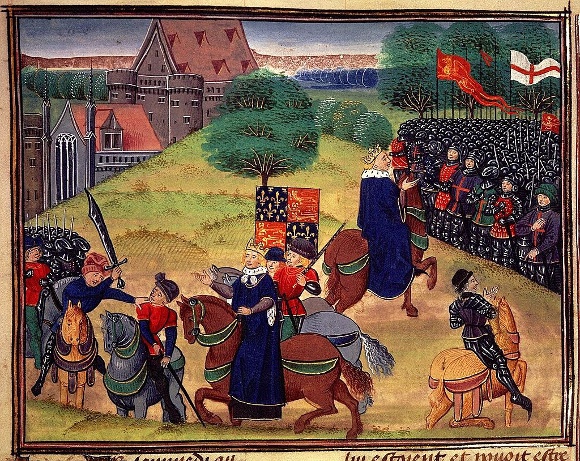Articles
- The world of Chaucer 1330-1400
- Medieval writers
- Key events
- Making sense of the tangible world
- Making sense of the intangible world
Social and political unrest - The Peasants' Revolt
In the post-plague society, there were demands for higher wages. Estate-owners often had to agree to these demands in order to secure workers. However, the government attempted to peg wages at the pre-plague levels, through the 1351 Statute of Labourers. The government tried to prevent people with ‘unfree' status (bondmen and bondwomen) moving away from the estates where they owed regular stints of labour during the year. The statute caused resentment. It also seems to have had little effect.
Another cause of antigovernment resentment was taxation. In particular, a series of ‘poll taxes' (poll means ‘head': these were taxes everyone had to pay) aroused particular anger and led to the English Rising of 1381 (also known as the The Peasants Revolt). There were uprisings in several areas, especially in the south-east and East Anglia. A march into London by men from Kent and Essex issued demands regarding:
- An end to the taxes
- The removal of ‘unfree' serf status
- A number of other reforms.
After enjoying some success initially, the Rising was crushed.

